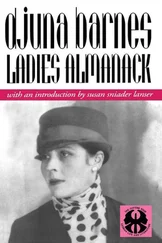When she danced, a little heady with wine, the dance floor had become a tactical manoeuvre; her heels came down staccato and trained, her shoulders as conscious at the tips as those which carry the braid and tassels of promotion; the turn of her head held the cold vigilance of a sentry whose rounds are not without apprehension. Yet Hedvig had done what she could. If ever there was a massive chic she had personified it—yet somewhere there had been anxiety. The thing that she had stalked, though she herself had not been conscious of it, was Guido’s assurance that he was a Baron. She had believed it as a soldier ‘believes’ a command. Something in her sensitory predicament—upon which she herself would have placed no value—had told her much better. Hedvig had become a Baroness without question.
In the Vienna of Volkbein’s day there were few trades that welcomed Jews, yet somehow he had managed, by various deals in household goods, by discreet buying of old masters and first editions and by money changing, to secure for Hedvig a house in the Inner City, to the north overlooking the Prater, a house that, large, dark and imposing, became a fantastic museum of their encounter.
The long rococo halls, giddy with plush and whorled designs in gold, were peopled with Roman fragments, white and disassociated; a runner’s leg, the chilly half-turned head of a matron stricken at the bosom, the blind bold sockets of the eyes given a pupil by every shifting shadow so that what they looked upon was an act of the sun. The great salon was of walnut. Over the fireplace hung impressive copies of the Medici shield and, beside them, the Austrian bird.
Three massive pianos (Hedvig had played the waltzes of her time with the masterly stroke of a man, in the tempo of her blood, rapid and rising—that quick mannerliness of touch associated with the playing of the Viennese, who, though pricked with the love of rhythm, execute its demands in the duelling manner) sprawled over the thick dragon’s-blood pile of rugs from Madrid. The study harboured two rambling desks in rich and bloody wood. Hedvig had liked things in twos and threes. Into the middle arch of each desk silver-headed brads had been hammered to form a lion, a bear, a ram, a dove, and in their midst a flaming torch. The design was executed under the supervision of Guido who, thinking on the instant, claimed it as the Volkbein field, though it turned out to be a bit of heraldry long since in decline beneath the papal frown. The full length windows (a French touch that Guido thought handsome) overlooking the park were curtained in native velvets and stuffs from Tunis, and the Venetian blinds were of that peculiarly sombre shade of red so loved by the Austrians. Against the panels of oak that reared themselves above the long table and up to the curving ceiling hung life-sized portraits of Guido’s claim to father and mother. The lady was a sumptuous Florentine with bright sly eyes and overt mouth. Great puffed and pearled sleeves rose to the pricked-eared pointings of the stiff lace about the head, conical and braided. The deep accumulation of dress fell about her in groined shadows, the train, rambling through a vista of primitive trees, was carpet-thick. She seemed to be expecting a bird. The gentleman was seated precariously on a charger. He seemed not so much to have mounted the animal, as to be about to descend upon him. The blue of an Italian sky lay between the saddle and the buff of the tightened rump of the rider. The charger had been caught by the painter in the execution of a falling arc, the mane lifted away in a dying swell; the tail forward and in between thin bevelled legs. The gentleman’s dress was a baffling mixture of the Romantic and the Religious, and in the cradling crook of his left arm he carried a plumed hat, crown out. The whole conception might have been a Mardi Gras whim. The gentleman’s head, stuck on at a three-quarter angle, had a remarkable resemblance to Guido Volkbein, the same sweeping Cabalistic line of nose, the features seasoned and warm save where the virgin blue of the eyeballs curved out the lids as if another medium than that of sight had taken its stand beneath that flesh. There was no interval in the speed of that stare, endless and objective. The likeness was accidental. Had anyone cared to look into the matter they would have discovered these canvases to be reproductions of two intrepid and ancient actors. Guido had found them in some forgotten and dusty corner and had purchased them when he had been sure that he would need an alibi for the blood.
At this point exact history stopped for Felix who, thirty years later, turned up in the world with these facts, the two portraits and nothing more. His aunt, combing her long braids with an amber comb, told him what she knew, and this had been her only knowledge of his past. What had formed Felix from the date of his birth to his coming to thirty was unknown to the world, for the step of the wandering Jew is in every son. No matter where and when you meet him you feel that he has come from some place—no matter from what place he has come—some country that he has devoured rather than resided in, some secret land that he has been nourished on but cannot inherit, for the Jew seems to be everywhere from nowhere. When Felix’s name was mentioned, three or more persons would swear to having seen him the week before in three different countries simultaneously.
Felix called himself Baron Volkbein, as his father had done before him. How Felix lived, how he came by his money—he knew figures as a dog knows the covey and as indefatigably he pointed and ran—how he mastered seven languages and served that knowledge well, no one knew. Many people were familiar with his figure and face. He was not popular, though the posthumous acclaim meted out to his father secured from his acquaintances the peculiar semi-circular stare of those, who, unwilling to greet with earthly equality, nevertheless give to the living branch (because of death and its sanction) the slight bend of the head—a reminiscent pardon for future apprehension—a bow very common to us when in the presence of this people.
Felix was heavier than his father and taller. His hair began too far back on his forehead. His face was a long stout oval, suffering a laborious melancholy. One feature alone spoke of Hedvig, the mouth, which, though sensuous from lack of desire as hers had been from denial, pressed too intimately close to the bony structure of the teeth. The other features were a little heavy, the chin, the nose, and the lids; into one was set his monocle which shone, a round blind eye in the sun.
He was usually seen walking or driving alone, dressed as if expecting to participate in some great event, though there was no function in the world for which he could be said to be properly garbed; wishing to be correct at any moment, he was tailored in part for the evening and in part for the day.
From the mingled passions that made up his past, out of a diversity of bloods, from the crux of a thousand impossible situations, Felix had become the accumulated and single—the embarrassed.
His embarrassment took the form of an obsession for what he termed ‘Old Europe’: aristocracy, nobility, royalty. He spoke any given title with a pause before and after the name. Knowing circumlocution to be his only contact, he made it interminable and exacting. With the fury of a fanatic he hunted down his own disqualification, re-articulating the bones of the Imperial Courts long forgotten (those long remembered can alone claim to be long forgotten), listening with an unbecoming loquacity to officials and guardians for fear that his inattention might lose him some fragment of his resuscitation. He felt that the great past might mend a little if he bowed low enough, if he succumbed and gave homage.
In nineteen hundred and twenty he was in Paris (his blind eye had kept him out of the army), still spatted, still wearing his cutaway, bowing, searching, with quick pendulous movements, for the correct thing to which to pay tribute: the right street, the right café, the right building, the right vista. In restaurants he bowed slightly to anyone who looked as if he might be ‘someone’, making the bend so imperceptible that the surprised person might think he was merely adjusting his stomach. His rooms were taken because a Bourbon had been carried from them to death. He kept a valet and a cook; the one because he looked like Louis the Fourteenth and the other because she resembled Queen Victoria, Victoria in another cheaper material, cut to the poor man’s purse.
Читать дальше












